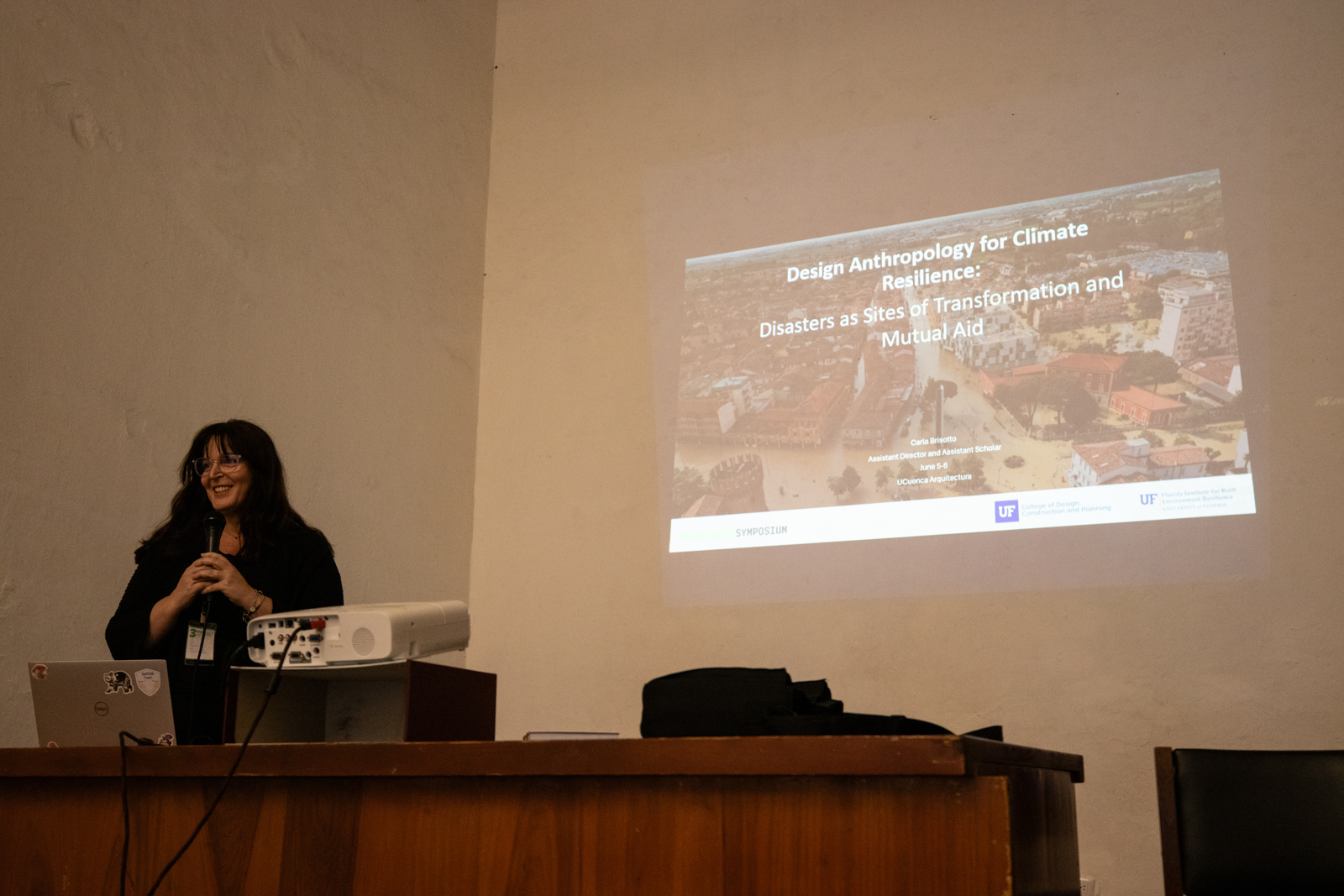When disasters strike, whether floods in Italy, hurricanes in Florida, or earthquakes in Ecuador, the damage is immediate. But the true test of resilience often comes in the “in-between” periods, when communities prepare, rebuild, and reimagine their futures.
UF Global Fellow Carla Brisotto, assistant professor in the School of Architecture, College of Design, Construction and Planning (DCP), and former Assistant Director of UF’s Florida Institute for Built Environment Resilience (FIBER), explores how communities can use design, history, and cultural memory to strengthen disaster reconstruction. Her work investigates how scarred landscapes can be preserved as reminders that foster awareness and improve urban ecosystems.
This summer, Dr. Brisotto presented her paper “Design Anthropology for Climate Resilience: Learning from International Reclamation Practices” at the Resilience in the Built Environment Symposium in Cuenca, Ecuador. The symposium, organized under a Memorandum of Understanding (MOU) between UF and Universidad de Cuenca, marked the first formal exchange between UF’s SHARE-Lab, led by Dr. Karla Saldana Ochoa, assistant professor in the School of Architecture and also a 2022 Global Fellows faculty member, and FIBER, along with Cuenca’s Virtualtec Llacta Lab and City Preservation Management. The international event provided a platform for dialogue on how cities worldwide can better prepare for disasters.

Her Global Fellows research will continue late this fall in Italy, focusing on flood-impacted municipalities in the Emilia-Romagna region, where disasters have left lasting physical and social scars. “I am submitting the IRB request for a survey that I will distribute to residents of the study area,” she said. Using design anthropology, ethnography, archival maps, and GIS-based reconstructions, Dr. Brisotto will explore how traces of past disasters can become tools for awareness and resilience. “Urban resilience is not a distant or abstract concept, it directly affects how Floridians live, rebuild, and thrive after hurricanes or flooding events,” she noted. These questions are urgent for Florida, where sea-level rise, stronger hurricanes, and outdated drainage systems and rapid urbanization mirror challenges faced in Europe and South America. Lessons about community engagement, infrastructure renewal, and disaster awareness abroad can inform resilience planning at home.
Beyond research, Dr. Brisotto is expanding UF’s global mission through the development of teaching exchanges with Italian universities, new MOUs and collaborative grant proposals with international higher education institutions. Reflecting on her experience, Dr. Brisotto highlights the role of the Global Fellows Program in advancing her applied work: “The Global Fellows Program is a really valuable resource to learn about how to conduct research at the international level. Not only are you exposed to sessions regarding UF policies to better navigate the complex system of working with and within other countries, but you also learn from experts about how to make your research more impactful to reach a larger audience. I truly recommend this program to anybody interested in growing their academic skills in the challenging field of international research.”

The Global Fellows Program, managed by UFIC’s Office for Global Research Engagement (OGRE), provides $5,000 seed grants to UF junior faculty to support international research trips, collaboration with scholars abroad, and access to global resources. Interested in the program? Applications for the 2026 cohort are now open! https://internationalcenter.ufl.edu/globalfellows

